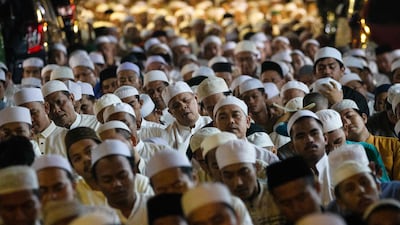Laylat Al Qadr — or the night of destiny — is one of the odd-numbered nights during the final 10 days of Ramadan in which the first verses of the Quran were revealed to the Prophet Mohammed.
An entire chapter is devoted to the night of destiny in the final part of the Quran, within which that night is described as “better than a thousand months” where the angels and the holy spirit Gabriel engulf the Earth.
The exact day of Laylat Al Qadr is not known, but the Prophet Mohammed said it falls in the last 10 nights of the holy month, on an odd-numbered night.
The 21st, 23rd, 25th, 27th and 29th nights of Ramadan could be the night of destiny, so the period takes on great significance for Muslims.
Many Muslims are keen to spend the final 10 nights of the holy month in worship, prayer and acts of kindness.
What is special about Laylat Al Qadr?
The reward for any good deed or act of worship conducted on that night is counted as more than one thousand months of doing it.
As the Prophet Mohammed once said after Ramadan had begun: “This month has come to you, and in it there is a night that is better than a thousand months. Whoever is deprived of it is deprived of all goodness, and no one is deprived of its goodness except one who is truly deprived.”
What are Qiyam Al Layl prayers?
The main prayer carried out each evening during Ramadan is the taraweeh. It is an extra prayer that Muslims are advised to carry out at a mosque among fellow worshippers.
Many also perform Qiyam Al Layl — or night prayers — during the final ten nights. These prayers are often organised after midnight at mosques.
Night prayers are said to be ideal for asking God for blessings because it is said He is more likely to listen.
*This story first appeared in The National in 2022




























